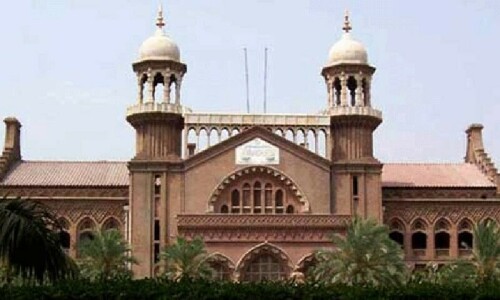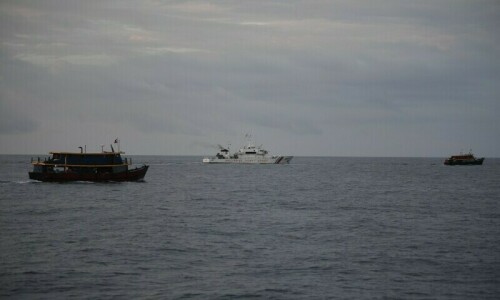KARACHI: As the upcoming government will be seeking a fresh bailout amid growing economic challenges, the Pakistan Business Council (PBC) has called upon the International Monetary Fund (IMF) to allow a five-year funding programme instead of three years.
A longer, five-year programme will allow the IMF to make tranche releases conditional on progress on fundamental reforms of the energy sector and the privatisation or closure of loss-making state enterprises.
Besides financial burden, inefficiently run state-owned enterprises that operate in the commercial space, provide unfair competition to the private sector, impeding scale and competitiveness, the government should be encouraged to get out of business, the council said.
PBC Chief Executive Ehsan Malik in a letter to IMF’s Resident Representative in Pakistan, Ms Esther Perez Ruiz said that front loading of targets by IMF stems from the relatively short-term programmes that have hitherto been offered to Pakistan.
No doubt, Mr Ehsan said that the IMF will require the mounting debts to be reprofiled to restore confidence in the economy. A larger as well as a longer IMF programme would provide creditors the necessary comfort.
He hoped that the next programme could be more reform-centric than the previous.
While sharing the contours that should differentiate the new programme from the previous, he said that the primary reason why the previous programmes failed to lead to sustainable reforms was the lack of political will and determination of various governments.
However, the IMF too needs to reflect on the design of its assistance package. The flaws in the economy have worsened over the years and the new programme would need to take account of this.
He said the PBC has been stressing the need for the IMF to move away from purely short-term and quantitative to a mix of medium-term quantitative and qualitative targets.
He said in the absence of the FBR’s capability and capacity to broaden the tax base as well as the weak political will of governments to disturb vote banks, IMF’s front-ended tax collection targets have been met by raising the tax burden on those that are already bearing a disproportionate load.
The levy of super tax is a case in point. Much of retail, wholesale, services, informal transporters, as well as the undocumented real estate sector, either go untaxed or are under-taxed.
A target such as “tax from new taxpayers” would be one way to ensure that tax revenue is increased equitably and sustainably. Moreover, this would also prompt significant restructuring of the FBR, he suggested.
Secondly, IMF’s tariff-driven measures address the symptoms but fail to cure the fundamental defects in the energy sector. Pakistan suffers from the highest electricity costs in the region. The competitiveness of industry, its capacity to create employment, reduce import reliance and generate exports is impeded by the burden of unutilised generation capacity, inefficiencies in transmission, theft, non-recovery of dues and cross-subsidies to residential consumers. High electricity tariffs incentivise theft and increase the reluctance of domestic users to switch out of less efficient, underpriced but fast-depleting local gas reserves.
To make matters worse, the PBC chief said there is substantial reliance on imported fuel for power generation and the transmission system is inadequate to maximise the use of cheaper renewable and coal power from the South.
Published in Dawn, March 3rd, 2024















































Dear visitor, the comments section is undergoing an overhaul and will return soon.